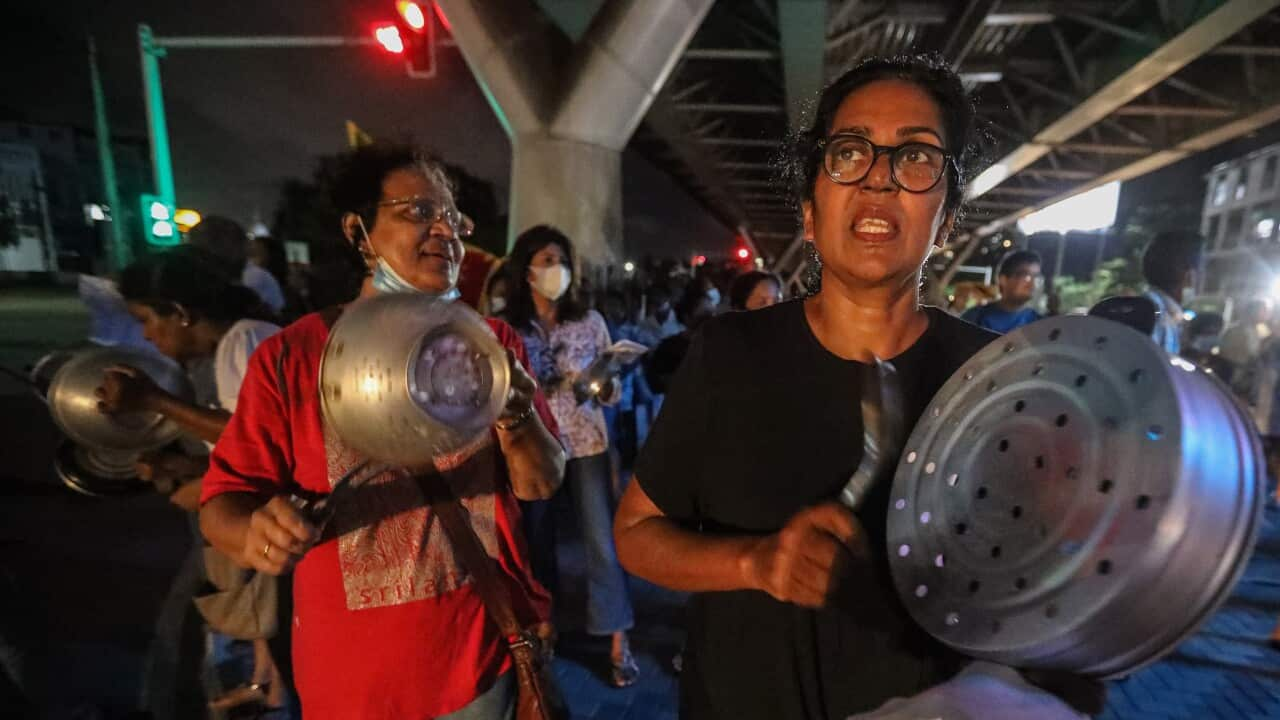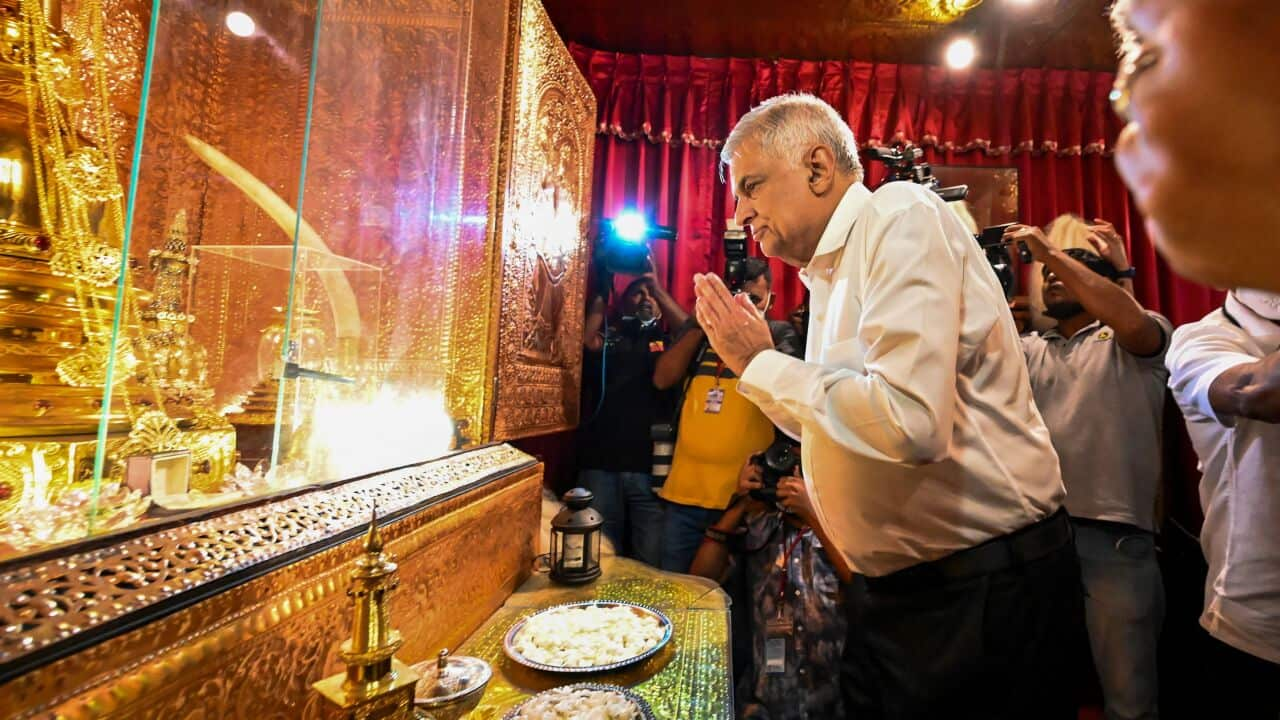Sri Lanka's prime minister says its debt-laden economy has "collapsed" after months of shortages of food, fuel and electricity, and the South Asian island nation cannot even purchase imported oil.
"We are now facing a far more serious situation beyond the mere shortages of fuel, gas, electricity and food. Our economy has completely collapsed. That is the most serious issue before us today," Prime Minister Ranil Wickremesinghe told parliament.
Mr Wickremesinghe is also the finance minister tasked with stabilising the economy, which is floundering under the weight of heavy debts, lost tourism revenue and other impacts from the pandemic and surging costs for commodities.
"Currently, the Ceylon Petroleum Corporation is $700 million ($A1 billion) in debt," he told lawmakers. "As a result, no country or organisation in the world is willing to provide fuel to us. They are even reluctant to provide fuel for cash," he said.
Sri Lanka will call China, India and Japan to a donor conference to drum up more foreign assistance and present an interim budget in August, Mr Wickremesinghe said on Wednesday, amid ongoing negotiations with the International Monetary Fund (IMF).
The island nation of 22 million people is struggling with its worst economic crisis in seven decades, unable to import essentials including food, fuel and medicines because of a severe shortage of foreign exchange.
An interim budget will be presented in August, seeking to put public finances on a more sustainable path and increase funds to the poor who have been hardest hit, Mr Wickremesinghe said.
"The interim budget will set the path forward. This, together with an IMF programme and debt sustainability, will lay the foundation for Sri Lanka to return to economic stability," he said.
In late May, Mr Wickremesinghe had told Reuters he would present an interim budget within six weeks, cutting government spending down "to the bone".
The dearth of basic necessities and spiralling inflation has stroked public unrest, pushing Mr Wickremesinghe's government to redouble efforts to bring in assistance from the likes of the IMF and friendly countries.
"We need the support of India, Japan and China who have been historic allies. We plan to convene a donor conference with the involvement of these countries to find solutions for Sri Lanka’s crisis," Mr Wickremesinghe told parliament.
"We will also seek help from the US," he said, adding that his administration will use $70 million from the World Bank for buying cooking gas, which has been in short supply, setting off sporadic protests.
A high-level delegation from India will arrive on Thursday for talks on additional support from New Delhi, and a team from the US Treasury will visit next week, Mr Wickremesinghe said.
India has so far provided around $4 billion worth of assistance, the prime minister said, including a $400 million swap and credit lines totalling $1.5 billion.
China, which has traditionally jostled with New Delhi for influence over the Indian Ocean island, is considering an appeal from Sri Lanka to renegotiate the terms of a yuan-denominated swap worth $1.5 billion to fund essential imports.
Mr Wickremesinghe said the government had failed to act in time to turn the situation around, as Sri Lanka's foreign reserves dwindled.
"If steps had at least been taken to slow down the collapse of the economy at the beginning, we would not be facing this difficult situation today. But we lost out on this opportunity. We are now seeing signs of a possible fall to rock bottom," he said.
The government also delayed the publication of its first-quarter GDP data, due on Wednesday, because its census and statistics department did not receive all required inputs on time, an official said.
"We are working to get the growth numbers out as soon as possible but it will probably take a few days due to delays and staff shortages," said Anura Kumara, director general of the Census and Statistics Department.











